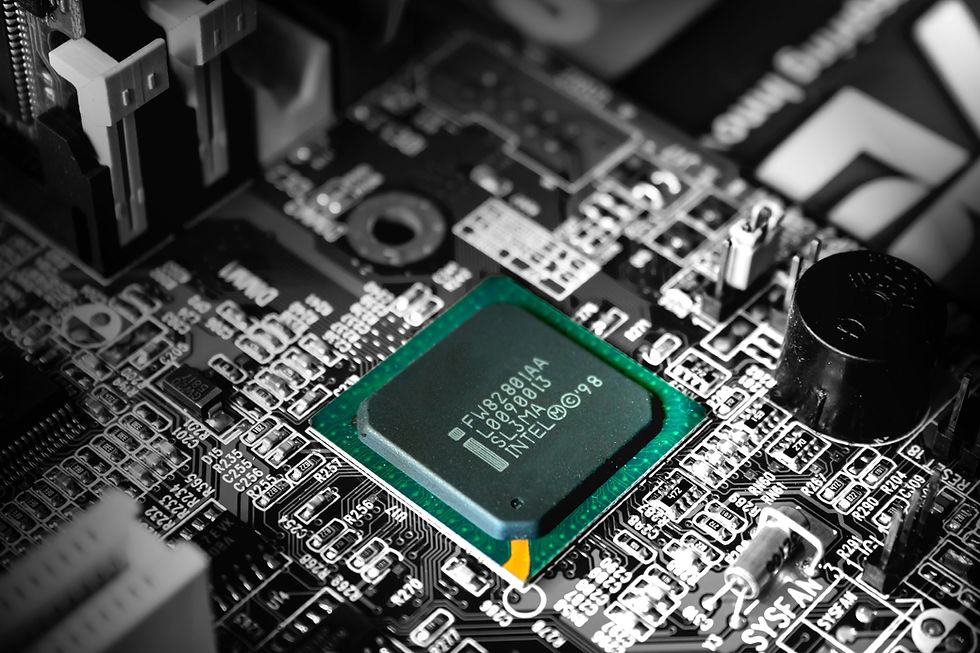Is AI Making Busy Work Obsolete?
- lzuze2
- May 8, 2025
- 3 min read

Busy work is often applied to create a sense of urgency in the workplace. The heuristic is simple: busy equals efficient.
More often than not, these tasks serve no real purpose beyond granting superiors the gratification of checking something off a list—or holding it over you. It's become a cornerstone of modern management: assigning otherwise trivial roles a renewed sense of authority, meaning, and usefulness within organizations.
Recently I became curious: Is AI at a point where this could go away?
As an experiment, I asked AI. Here’s what generative AI had to say:
Artificial Intelligence is rapidly rendering many forms of traditional workplace busy work obsolete—particularly routine writing tasks like business communication, cover letters, and low-impact internal memos. These tasks, long used as proxies for competence and diligence, are increasingly automated with AI tools that produce high-quality, grammatically sound, and appropriately formatted writing in seconds. As a result, the value of spending time manually crafting these documents is diminishing.
Clarity, persuasion, or documentation can now be achieved faster and often more effectively through AI assistance. For example, an AI can instantly generate a persuasive cover letter tailored to a job posting, while an employee can focus on higher-order tasks such as strategic thinking or creative problem-solving. Similarly, status updates, meeting summaries, and routine email responses can be standardized and automated without compromising quality or professionalism.
Continuing to ask employees to spend time mastering and executing tasks that AI can handle more efficiently is a misallocation of human potential. It drains time and energy that could be better used for collaboration, innovation, or critical analysis—areas where human insight is still indispensable.
This is not to say writing is no longer important. Rather, the skills that matter are shifting: from formatting documents to guiding AI prompts, from composing content to curating and refining it. The modern worker should understand how to use AI tools effectively, assess the quality of AI-generated output, and bring human judgment to bear where nuance, context, and creativity are required.
In sum, AI doesn’t eliminate the need for communication—it redefines it. Busy work is becoming automated. Asking employees to continue performing these tasks manually is no longer efficient, nor is it a meaningful test of their capabilities. The future belongs to those who know how to delegate the routine to machines and focus their time on work that truly adds value.
AI created this argument in a few seconds. It definitely needs improvement, but I still find it impressive. One major issue I have with generative AI is that it often mistakes repetition and boisterous academic language for “good writing.” It’s not hard to debunk whether or not an essay was written by AI. I would never submit this essay for a writing sample or a writing assignment. The argument could be clearer and more persuasive. Good writers don’t write this way. It reads as acceptable, but still very bland.
My feelings towards AI are complicated. It is a useful tool. It is not the scary quick-fix-to-writing it's been made out to be. For AI to work you have to already know how to think, edit, and instruct. In other words, you need to know how to write. Without those skills it’s fundamentally useless. So no, I don’t think it will replace writing in the workplace—or anywhere else—completely.
However, the technology behind AI is improving at an incredible rate. The abilities of generative AI still lends the question: Is AI the future of simple writing tasks? Moving forward, is management about to steer away from the task rabbit mentality, or is that email “ping” too sweet a sound to quit just yet?
_edited.png)



Comments